The second Red Bull Racing seat has long been Formula 1’s most volatile proving ground, a poisoned chalice cloaked in prestige, where dreams go to soar or die.
For Yuki Tsunoda and Liam Lawson, the events following their shocking post-China seat swap have exposed the unforgiving heart of that opportunity and left both drivers bruised by the high expectations, relentless comparisons, and brutally small margins that define life under Red Bull’s microscope.
Comparing anyone to Max Verstappen is no easy task, and Red Bull knows it. As driver advisor Helmut Marko has repeatedly stressed, the team doesn’t expect its second driver to challenge the reigning world champion. Their job is to maintain a manageable gap and contribute solid points towards the Constructors’ Championship.
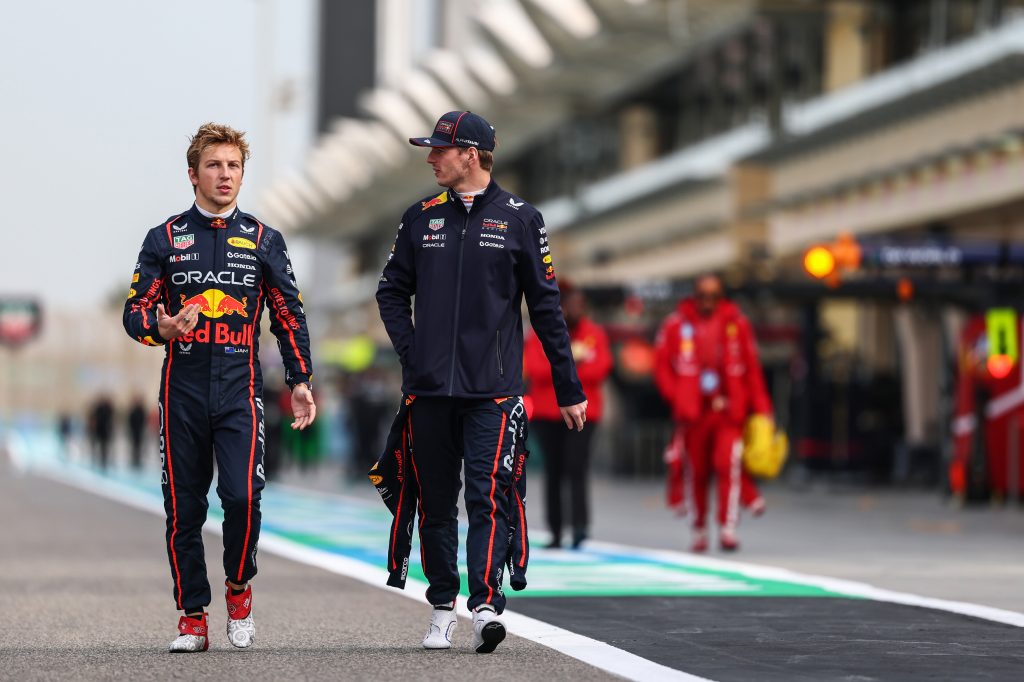
Now, as both drivers navigate their altered paths, one climbing back from rejection, the other clinging to the dream, a new twist looms on the horizon.
Verstappen sits just one penalty point away from a race ban. Red Bull is reportedly scrambling behind the scenes to secure a super licence for junior sensation Arvid Lindblad. At the same time, Lawson waits in the wings, again a candidate, again uncertain, and still very much under the microscope.
Swapped, Dropped, and Forgotten: Lawson’s Harsh Two-Race Trial
In what will go down as one of the more baffling mid-season calls in recent memory, Red Bull opted to pull Lawson from the main team after just two races, replacing him with Tsunoda, the very driver Red Bull had evaluated and passed over just five months earlier.
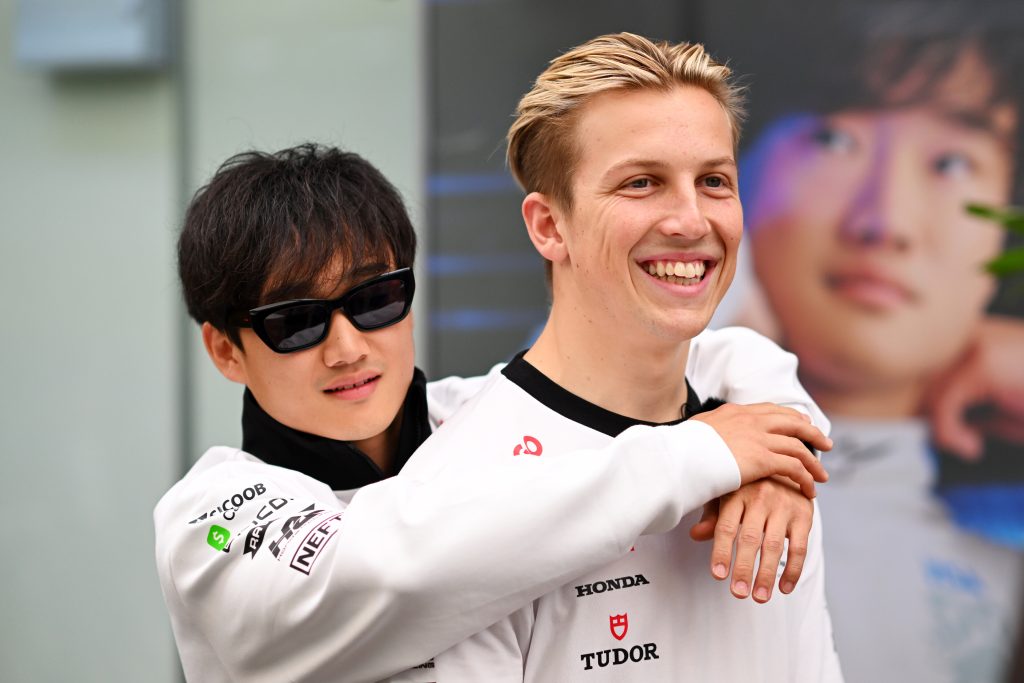
Lawson’s promotion, a reward for his impressive performances as a substitute in 2023 (including a standout points finish in Singapore), was widely seen as long overdue. But any sense of momentum was quickly shattered.
Lawson never got the full toolkit, neither technically nor politically. With little time to adapt to the notoriously razor sharp front-end biased RB21 and the pressure of racing beside Verstappen, Lawson wasn’t graced with the patience or resources Tsunoda has since enjoyed. After just two races, Melbourne and China, he was gone.
Meanwhile, Tsunoda has now had seven races and counting to try and make the RB21 work despite crashing in Imola and consistently struggling in qualifying. That double standard hasn’t gone unnoticed.
The crash at Imola was particularly revealing, mainly because, as Tsunoda himself admitted, it stemmed from underestimating the RB21’s unpredictable nature. He believes it’s the kind of mistake that wouldn’t have happened in the Racing Bulls car, which by that point had become second nature to him.
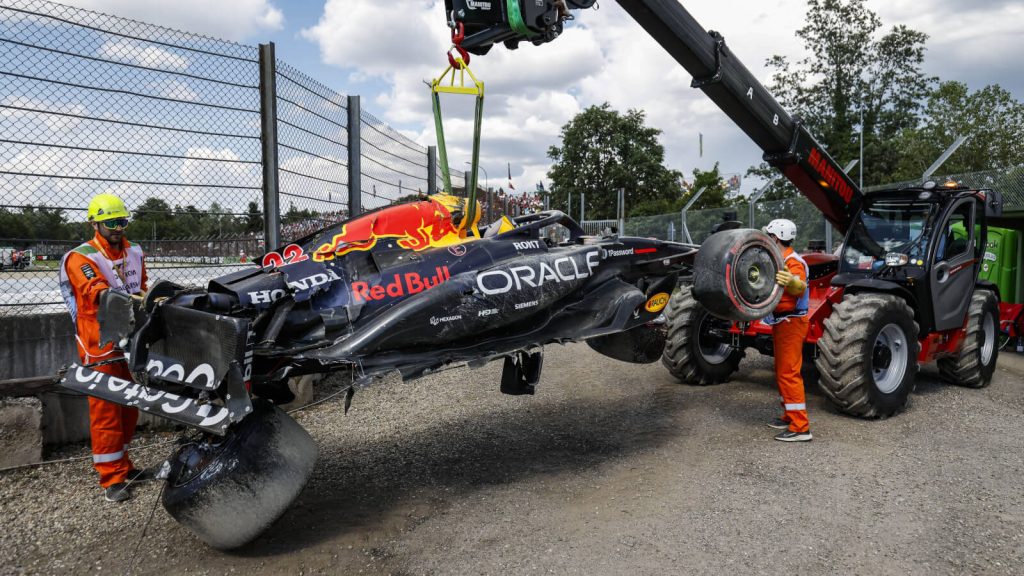
“I believe the Imola incident made me realise how much I still have to understand about the Red Bull. I probably underestimated just how important it is to really know certain details,” Tsunoda said
“In recent years with Racing Bulls, I didn’t even have to think about it. I reacted naturally and drove fast.”
Tsunoda’s honest reflections offer insight into his challenges but also highlight how harshly Lawson’s two-race evaluation now looks in hindsight.
In those same difficult circumstances, Tsunoda is being given time. Lawson was shown the door.
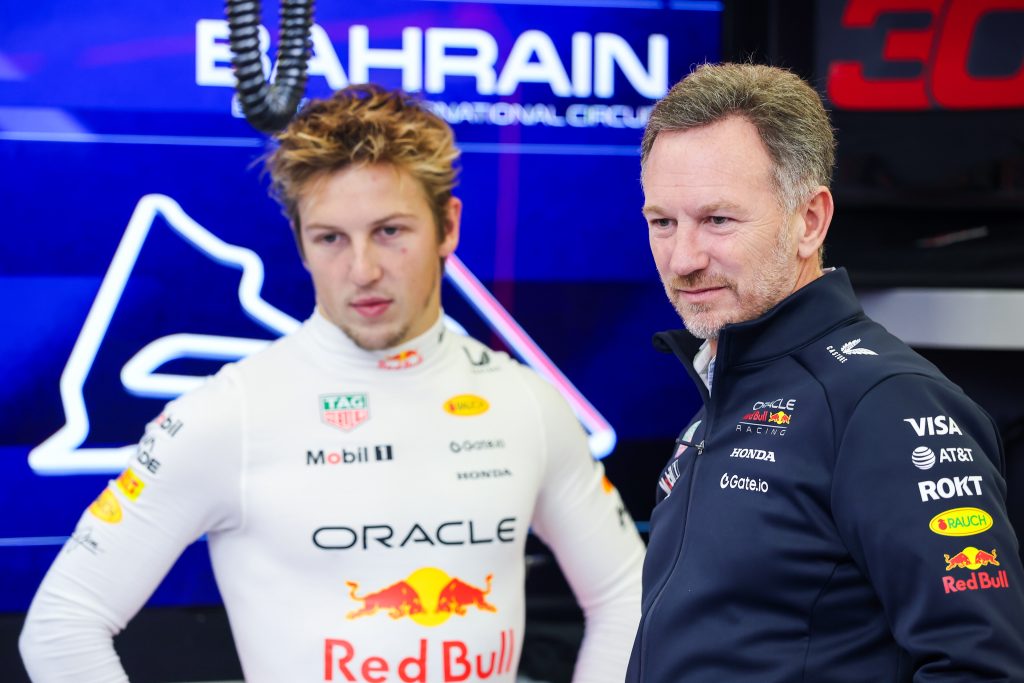
Now or Never: Verstappen’s Penalty Saga Opens the Door Again
But the game may not be over. With Verstappen carrying 11 out of a maximum of 12 penalty points, a single incident in Canada or Austria could see the reigning World Champion slapped with an automatic one-race ban.
Who replaces Verstappen if that happens?
Lawson is the clear frontrunner, officially the Red Bull reserve, but it’s not that simple. Red Bull have also reportedly applied for an urgent FIA super licence for 17-year-old Arvid Lindblad, currently racing in Formula 2. Hadjar, too, is in the conversation, particularly given his form and growing favour within the Red Bull junior system.
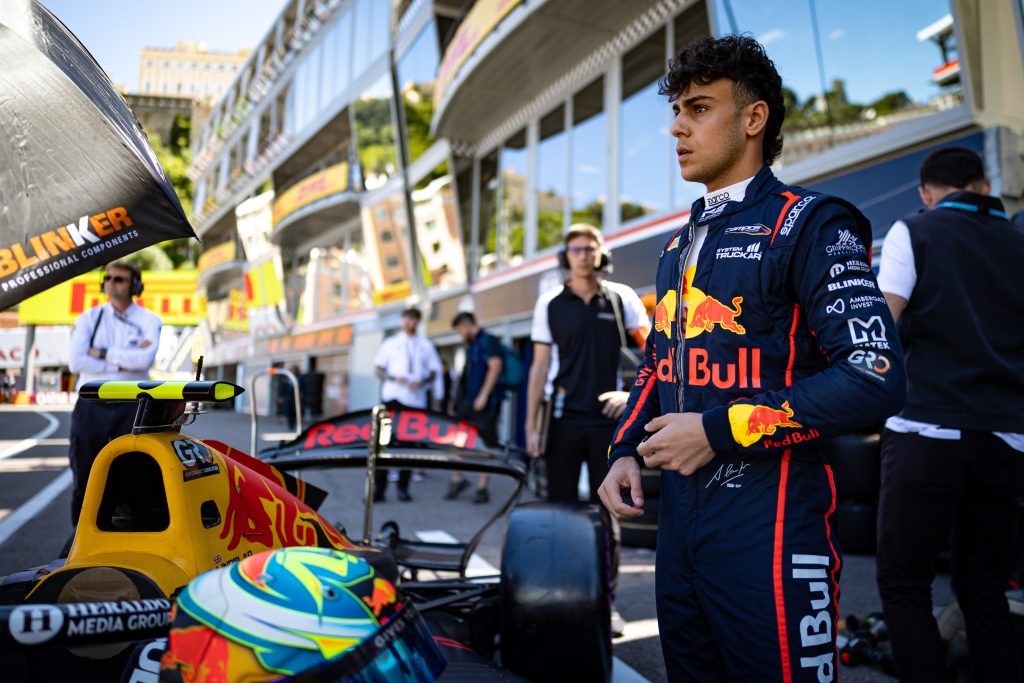
The chaos speaks volumes. Even now, Lawson, the logical and experienced option, remains on unstable ground.
Liam Lawson: The Right Driver, Wrong Timing?
It’s a situation all the more frustrating when viewed in the context of Lawson’s career. The 23-year-old Kiwi has already built an enviable résumé. From multiple wins in Formula 2 to stellar showings in Super Formula, where he nearly won the title as a rookie, Lawson has proven adaptable, composed under pressure, and fiercely quick.
He’s one of the rare drivers to make a points finish on debut seem routine. For example, his calm, calculated drive to ninth in Singapore last year was a masterclass and the clearest sign yet that he belongs on the grid full-time.
At Racing Bulls, his 2025 return hasn’t been fireworks, but it’s been a story of steady progress. Despite battling a midfield car and the ever-improving rookie Isack Hadjar, Lawson has started to rebuild his confidence. His eighth place in Monaco was a reward for his perseverance and came after a clean, well-executed weekend.
“In Monaco, from free practice, we improved and put ourselves in a good position for qualifying,” he said.
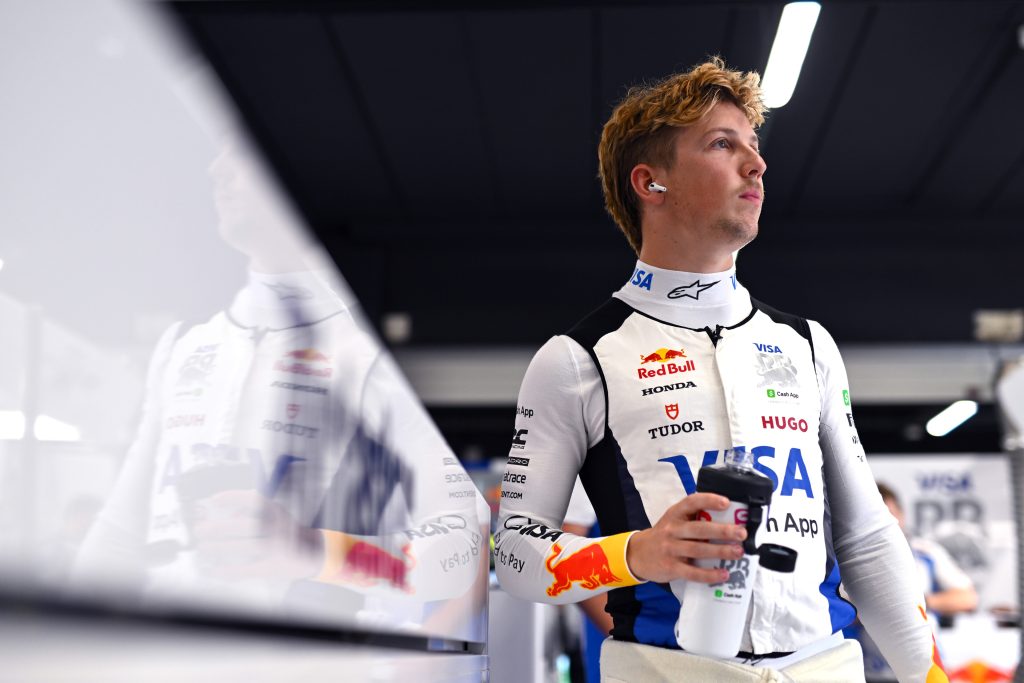
“But I wouldn’t say I felt anything different during the weekend. It wasn’t like something suddenly clicked inside me.
“That feeling has been there in every race. It’s just that we had a clean weekend – the first all season.”
His qualifying form, admittedly a weakness, is improving, though he’s still trailing Hadjar by an average of around three and a half-tenths. But race pace and adaptability remain his strengths. And in terms of outright fastest laps (excluding Bahrain, where he had a DRS issue, and Imola), Lawson’s gap to Tsunoda is just two-tenths, smaller than his gap to Hadjar.
Even more intriguingly, Lawson has outqualified Tsunoda four times since the swap, reinforcing just how difficult the Red Bull car is and how unjust the short leash really was.
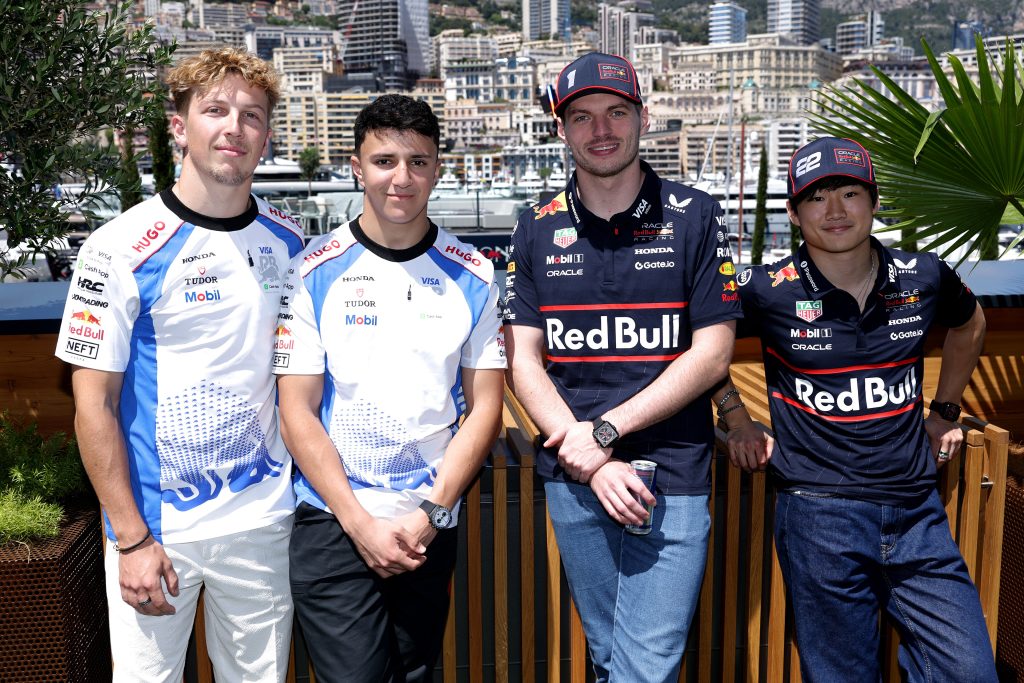
It’s worth remembering that very few Formula 1 drivers have jumped into a new seat and delivered instant results. Even some of the grid’s biggest names needed time to adapt, settle into a new team environment, build trust with engineers, and find the delicate balance required to unlock performance from complex machinery.
The likes of Sergio Pérez, Carlos Sainz, and even George Russell struggled initially when stepping into new teams, requiring multiple races to truly find their feet.
Meanwhile, in 2025, several full-time drivers continue to underperform relative to their teammates with far less scrutiny, yet for some reason, Lawson has become the scapegoat.
Despite being thrown into one of the most notoriously tricky cars on the grid with minimal notice and just two race weekends to prove himself, Lawson has faced harsher criticism than many who’ve been given months, even years, to develop.
The question must be asked: why is Lawson held to a different standard?
Tsunoda’s Time Ticking?
For Tsunoda, this run at Red Bull is starting to resemble a trial by fire. He’s scored just 10 points in seven races, with his rhythm often disrupted by the RB21’s narrow operating window. Spain marked his lowest point, caught up in set-up experiments and ending up last in qualifying.
He remains hopeful, recently stating, “It can’t get any worse – so let’s see,” in reference to trying new simulator settings ahead of Canada.
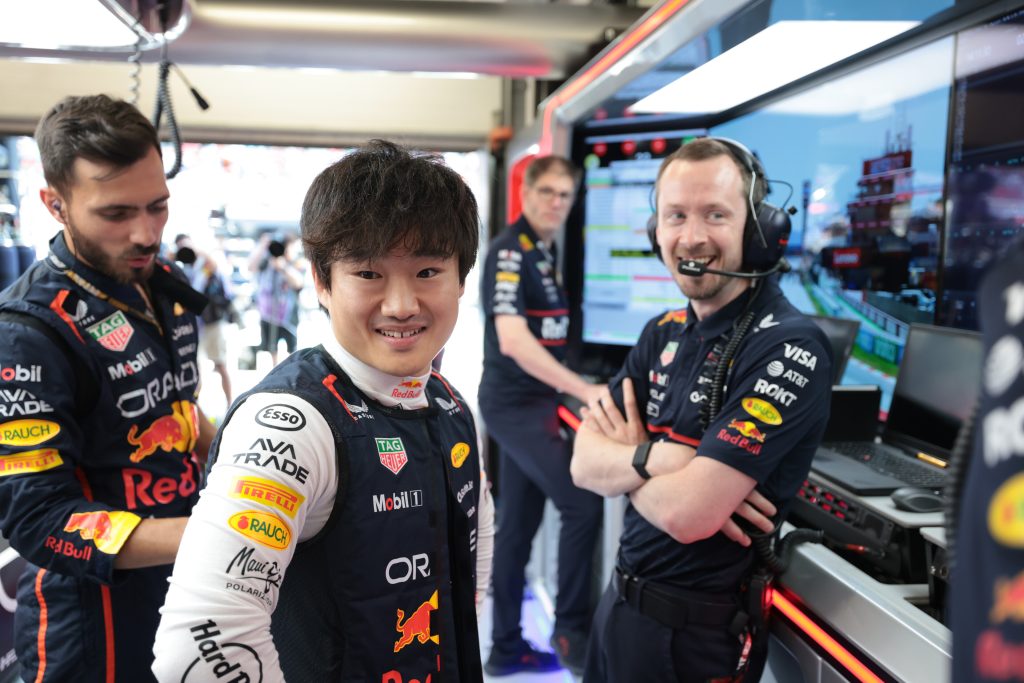
But the reality is clear: Red Bull expected more. With Pérez floundering and Verstappen carrying the team, they need a dependable second scorer, and Tsunoda hasn’t yet delivered.
Red Bull has publicly confirmed that Tsunoda will be given at least the remainder of the 2025 season in the seat alongside Verstappen despite a string of underwhelming results.
That said, Red Bull made similar assurances about supporting Lawson after his difficult debut in Melbourne, yet their actions soon told a different story. In recent times, what Red Bull says and what Red Bull does haven’t always aligned.
On the surface, it appears to be a show of faith in Tsunoda, who is still adjusting to one of the most sensitive and high-pressure cars on the grid. But behind the scenes, murmurs continue to circulate that the decision wasn’t purely performance-based.
According to paddock sources, Honda, a key Red Bull power unit partner and long-time backer of Tsunoda, was instrumental in the seat swap decision.
It has been reported that the Japanese manufacturer, which was already paying approximately NZ $19 million per year to secure Tsunoda’s Racing Bulls seat, significantly increased its financial commitment to ensure his promotion to the senior team.
The revised figure remains undisclosed, but insiders suggest it played a decisive role in Red Bull’s early-season reshuffle, with Lawson ultimately the one displaced after just two race weekends.
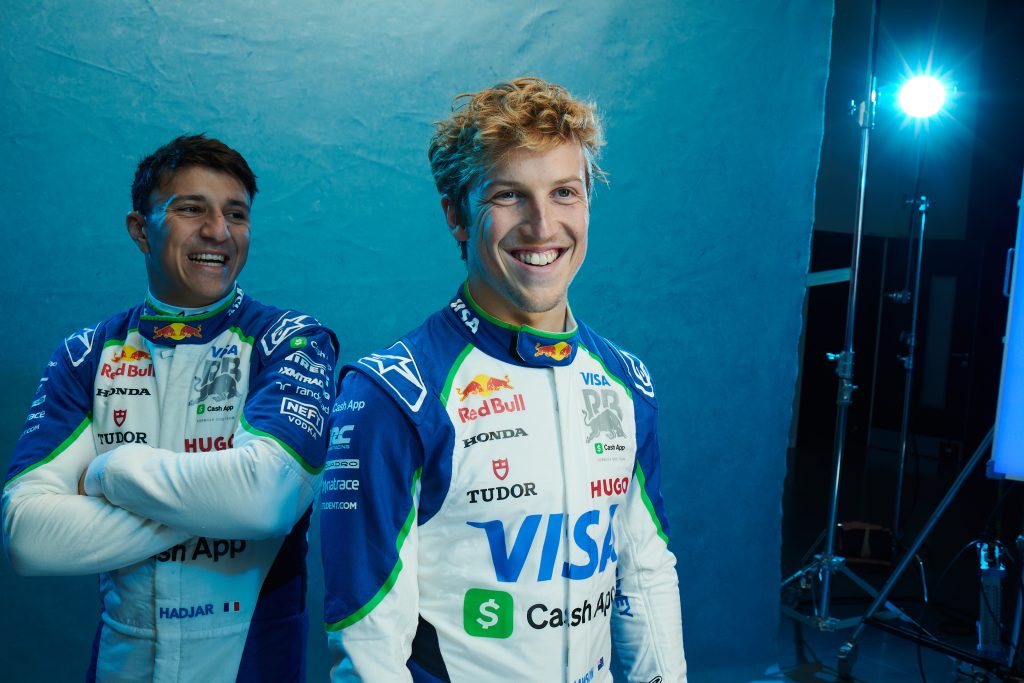
The Bigger Picture: Red Bull’s Never-Ending Revolving Door
This isn’t just a Lawson vs. Tsunoda story. It’s a symptom of the greater Red Bull system, one that chews up and spits out drivers with alarming regularity. From Gasly to Albon to Pérez, and now Tsunoda and Lawson, the pressure cooker continues to bubble, and no one is safe.
The next twist could come as early as Canada. If Verstappen collects another penalty point, the decision over who fills in might finally give Lawson a second chance to prove his worth properly.
But will Red Bull finally back him? Or will they, once again, gamble on someone newer and shinier?
Header Image: Collaboration from Red Bull Content Pool
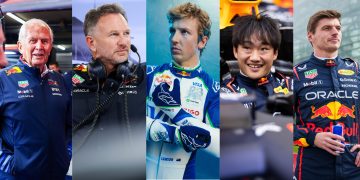














I feel for Lawson here. He’s been treated poorly by Red Bull for a long time now. He should have had a full time drive back in 2023. But politics and money put a stop to that. Why people just expect when he goes into a new team that he will instantly set the world on fire is beyond me. Look at every driver that’s switched teams this year and they have all struggled. Hamilton, Sainz, everyone. And Lawson has had to do it twice and while dealing with being kicked from RBR. I’m glad to see his margin to Hadjar improving, and he’s managed to look the stronger of the pair in free practise. He just needs to convert that into qualifying. RBR need to keep all their drivers where they are for now as the reg change next year will change everything again. Some drivers will adapt better than others.
Yes leave Liam where he is. He is improving.